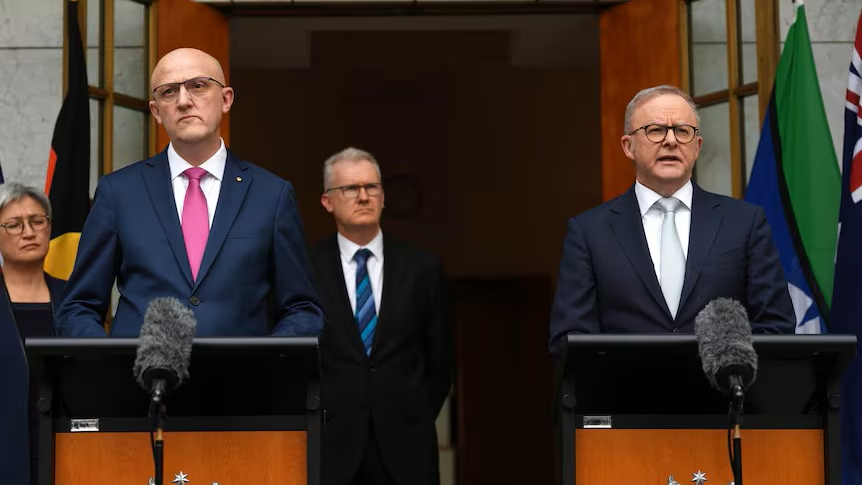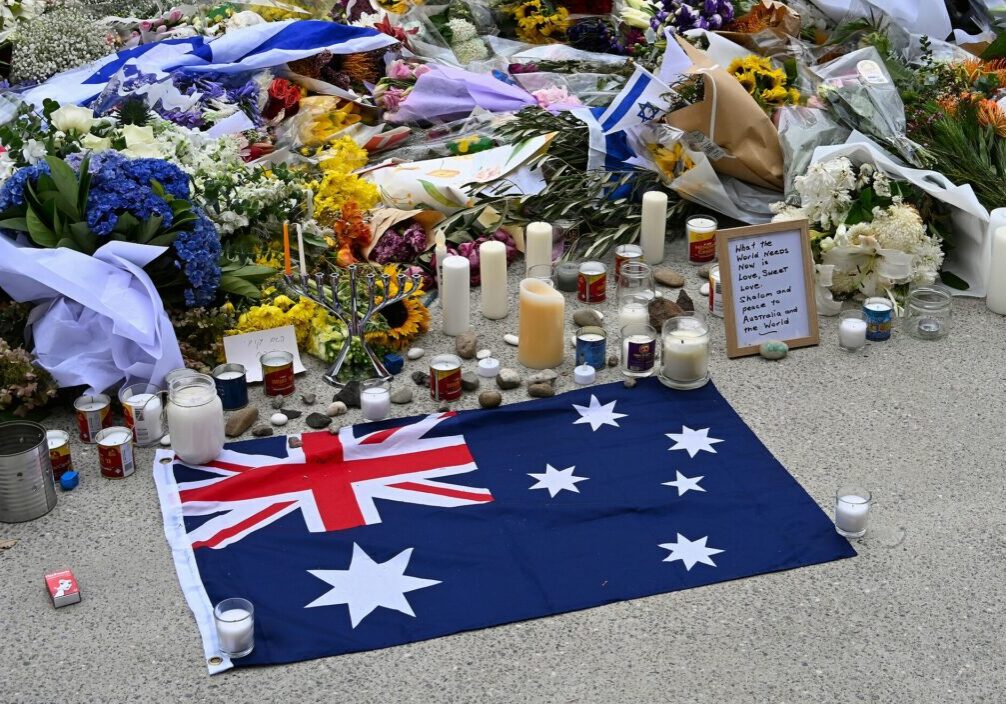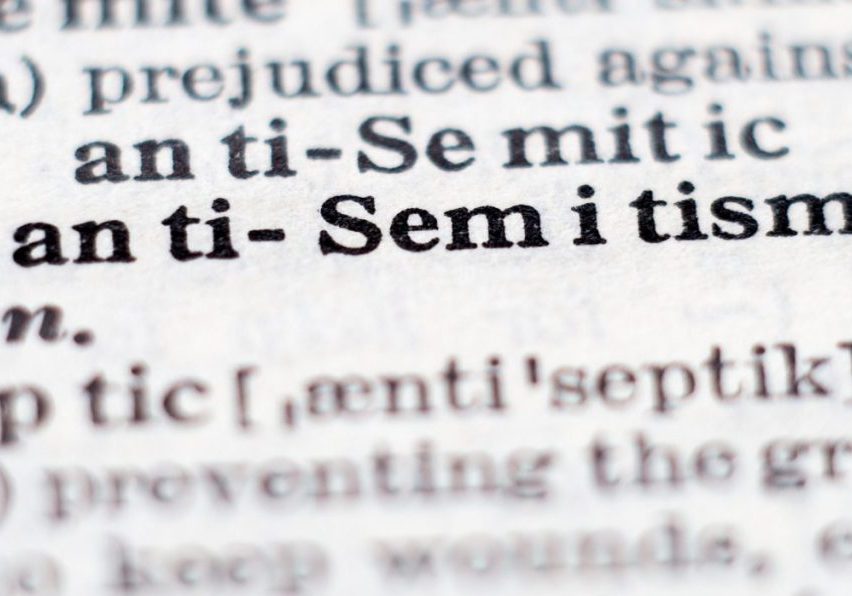Australia/Israel Review
Editorial: The implications of Iranian attacks upon Australia
Sep 18, 2025 | Colin Rubenstein

Prime Minister Anthony Albanese’s announcement on August 26 that the Iranian Ambassador in Canberra would be expelled and Labor would legislate to proscribe Iran’s Islamic Revolutionary Guard Corps (IRGC) should be a watershed in Australia’s foreign policy. The move came as a result of the regime’s involvement in at least two, and likely more, criminal antisemitic attacks on our soil.
Various Australian governments and many pundits have long maintained that the Middle East is of peripheral concern to Australia, and distant rogue actors like Iran are not something about which we need to worry. Our focus, they argued, should be almost solely on our own region. But ignoring the dangerous, destabilising and illegal behaviour of the Iranian regime did not make it go away. Instead, it has now been confirmed that Iran was covertly organising and funding violent attacks in Australia – something as close to an act of war as anything Australia has witnessed in decades.
For years, AIJAC has documented how Australia has substantially lagged behind allies and partners in terms of both statements and sanctions against the Iranian regime relating to all of its malign activities – including not only its horrendous domestic oppression, global terrorism, regional destabilisation, illegal nuclear weapons efforts, and substantial material support for Russia’s invasion of Ukraine, but also hostage-taking and intimidation of anti-regime Iranians in Australia. So the Government’s decisions following the confirmation by ASIO of Iran’s direct involvement in two of the worst violent antisemitic attacks in Australian history – the firebombings of the Adass Israel Synagogue and Lewis’ Continental Kitchen – are very welcome, but also overdue.
It is clear that ASIO’s findings caught the Government by surprise, but they shouldn’t have.
There were multiple reports that Iranians and anti-regime Australians, including former Iranian hostage Kylie Moore-Gilbert, were being spied on and intimidated over the past few years.
Since 2022, reports have emerged from across Europe that Iran was contracting out antisemitic attacks and the monitoring of potential local Jewish targets to organised crime, something publicly announced by intelligence officials in the UK in early 2023 and again in the UK and Sweden in 2024.
On July 31 this year, Albania, Austria, Belgium, Canada, Czechia, Denmark, Finland, France, Germany, the Netherlands, Spain, Sweden, the UK and the US released a joint statement condemning Iran for “increasingly collaborating with international criminal organisations to target” Jewish citizens, journalists, dissidents and former officials in their countries.
AIJAC warned of this Iranian threat on March 1, 2023:
Any potential overlap between organised crime in Australia, particularly Middle Eastern criminal networks, and Iran’s Islamic Revolutionary Guard Corps (IRGC) and Intelligence Ministry (MOIS), could prove to be extremely dangerous for Australians. This is especially true given the evidence that the IRGC’s Lebanese front, Hezbollah – itself a transnational organised crime syndicate – is intimately intertwined with Middle Eastern organised crime networks here.
And it must be remembered that the Iranian regime, which is foundationally antisemitic and believes for theological reasons that it is locked in an existential war with Jews, makes no distinction between Jewish and Israeli targets. It has relentlessly pursued targets like local synagogues and community institutions for decades – the most infamous example being the AMIA bombing in Argentina in 1994, which took 85 lives, and injured hundreds.
But if the Government deserves credit for its breakthrough action on Iran, far less welcome is its announcement that it will join the UK, Canada, France and others in recognising a currently non-existent Palestinian state at the upcoming UN General Assembly. This is a completely counterproductive move that actually rewards Hamas terrorism and extremism, makes Palestinian Authority reform less likely, and abandons any ability to influence the Israeli Government we might have previously possessed – thus making the two-state resolution the Government seeks much less likely.
Given the announcements that have already been made, the Government almost certainly won’t reconsider its foolish and unhelpful decision to recognise “Palestine” – but in a world where politics did not have such a powerful role in decision making, the revelation of the targeting of both Australians and of Australian social cohesion by Iran should certainly cause a rethink.
We are now effectively in the same boat as Israel, which has been targeted by Iran for decades on a vastly greater scale.
While the timing of the October 7 attack was apparently decided by Hamas alone, it is nonetheless the case that this was the culmination of Iran’s plan to destroy Israel via a multi-front war waged by its “axis of resistance”, including Hamas, Hezbollah and others, termed the “ring of fire”. That horrific attack, let alone subsequent Iranian violence, should have seen the listing of the IRGC as a terrorist organisation. It also should have led to Labor becoming more aware of how its obsessive focus on recognising a Palestinian state – supposedly as “a way of building momentum towards a two-state solution” – was unrealistic for at least the time being, and how its statements and actions might disrupt attempts to force Hamas to capitulate, damage US-led mediation efforts in Gaza, or encourage domestic antisemitism here.
Instead, we saw recognition pushed through, initially with conditions, but ultimately with none that have any actual substance. And predictably, Hamas welcomed this move, and presented it, along with the recognition from other states, as an achievement of the October 7 atrocities.
There is still time to at least clarify that recognition would only come into effect after all hostages are released and Hamas no longer controls Gaza, as Belgium recently suggested. Recognition could also at least be used as a conditional carrot to encourage PA reforms and genuine deradicalisation in Palestinian society.
However, the current effectively unconditional promise of recognition not only rewards Hamas, October 7 and decades of Palestinian rejectionism and terrorism, but is also farcically predicated on extremely dubious or downright impossible Palestinian Authority (PA) verbal commitments. Should there not at least be some evidence of implementation of those commitments prior to recognition?
The Government acted quickly and effectively in the wake of ASIO confirming Iran’s orchestration of attacks on our soil. Now, it should also assess the implications of those attacks on other aspects of our foreign policy – especially its misconceived, premature recognition of “Palestine”.
Targeting Hamas’ haven in Qatar
It was not surprising that Israel launched a precision strike targeting the most senior Hamas leadership in their haven in Doha, Qatar on Sept. 9 – even if it unfortunately did not succeed in killing them. These individuals were directly responsible for the brutal October 7 massacre, and have been orchestrating and managing the war against the State of Israel, replete with numerous war crimes, ever since – including vicious terrorist attacks like the one that occurred in Jerusalem on Monday, September 8.
Moreover, these Hamas leaders, who have made millions of dollars off Palestinian suffering and live a life of utter luxury in Doha, could end the war today if they would agree to Hamas laying down its arms and releasing the hostages, ending the suffering of both Palestinians and Israelis alike.
It should also be remembered that Qatar itself is far from an innocent bystander or neutral ‘mediator’. It is one of Hamas’ most important allies, hosting its leadership in lavish style, supplying the terror groups with funds, and employing the state-funded and controlled Al Jazeera media network as something akin to Hamas’ propaganda arm. The Qatari Government also spends billions spreading Islamist extremism and antisemitism around the world.
So while Qatar, as such, was not the target of this attack, it is to some extent reaping what it sowed, and it is hard to have much sympathy with its complaints about Israeli violation of its sovereignty.






